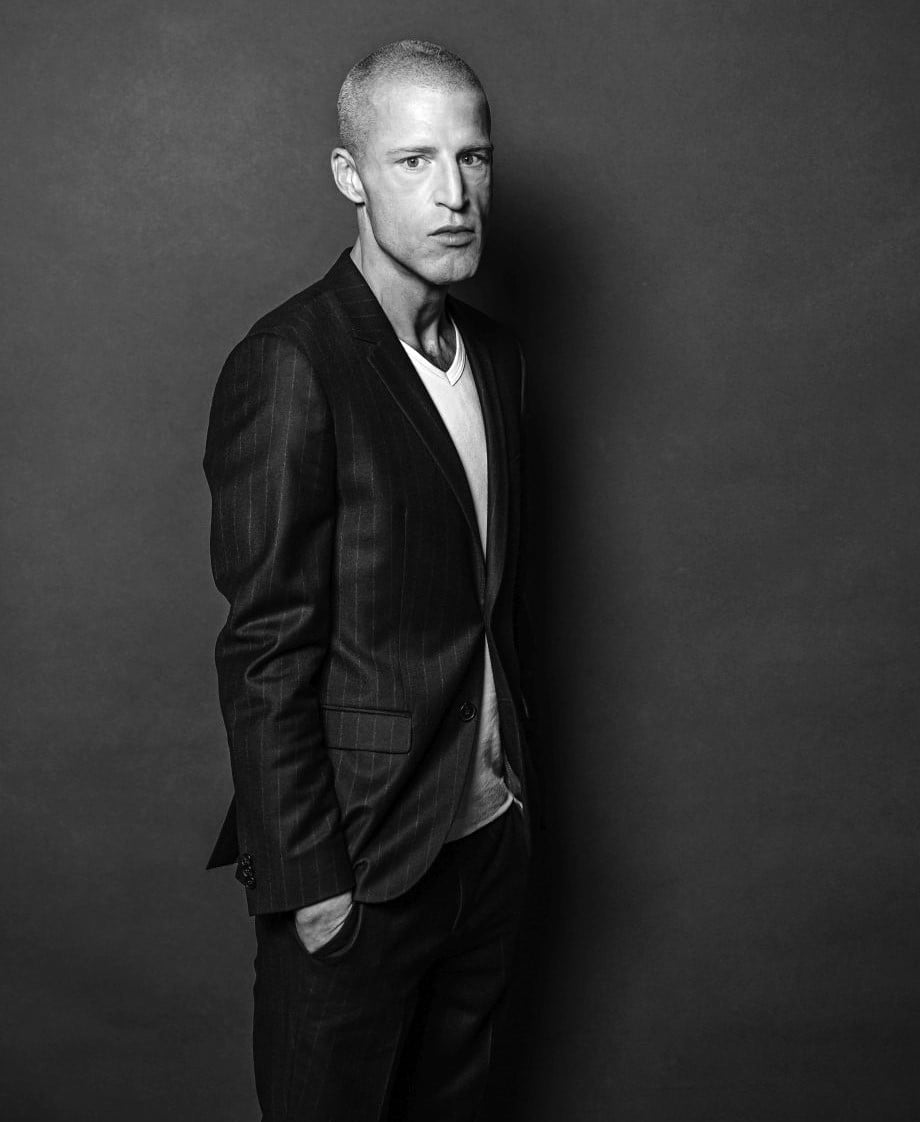
Benjamin von Stuckrad-Barre
Benjamin von Stuckrad-Barre was born in Bremen in 1975. Before publishing his first novel, he was an editor at the German »Rolling Stone«, product manager at a record label, and author of the »Harald Schmidt Show«. He also wrote for various newspapers and magazines, including the »FAZ« and the »Stern«.
His debut novel »Soloalbum« (1998) became a bestseller and earned Stuckrad-Barre a place amongst the pioneers of the new German pop literature. The first-person narrator, in his early twenties, has just been dumped by his girlfriend and now, usually in a drunken stupor, staggers through nightlife and the music scene, sinking into self-doubt and longing for his ex-girlfriend, pursuing meaningless activities and ruminating on questions of everyday life and good taste. The book is divided like a record into an A and a B side and the chapters are named after songs by Oasis. The book is thus not only a tribute to the British band, but also picks up on the melancholy of their music on a linguistic level to convey the protagonist’s attitude towards life. The novel was successfully made into a film in 2003. After his debut, Stuckrad-Barre published further reports, articles, essays, and books, mostly on pop culture topics, such as »Livealbum« (1999), »Remix« (1999), and »Blackbox« (2000). He took stock of contemporary Germany in »Deutsches Theater« (2001; tr: German Theatre), a collage of articles and photos of celebrities from politics, culture, sports, and society. The author examined their roles within public life as part of a self-conducted experiment. In his autobiographical novel »Panikherz« (2016; tr: Heart of Panic), which was also adapted for the stage, he tells of the challenges of acquiring fame at a young age, which led to a loss of reality and drug addiction: »In the brightest light, in front of everyone’s eyes, the text tries to translate failure into language, to narrate the fear of death« (»Deutschlandfunk«). His shortcomings were followed by a path to self-discovery, in which Udo Lindenberg and his checkered biography proved to be anchor points. The German rock star is also the subject of the book »Udo Fröhliche!« (2016; tr: Merry Udo!), a collage of various illustrative forms of representation designed as an encyclopedia. After he published »Ich glaub, mir geht’s nicht so gut, ich muss mich mal irgendwo hinlegen« (2018; tr: I Don’t Think I’m Feeling Too Well. I Need to Go Lie Down Somewhere), the third »remix« of texts about current events and portraits of celebrities, Stuckrad-Barre released his decadent-intellectual battle of wits together with Martin Suter, »Alle sind so ernst geworden« (2020; tr: Everyone Has Become so Serious).
For many years, Stuckrad-Barre hosted programs on German and Swiss television and has also had his own shows on radio. In 2013, he received the German Reporter Award together with Hajo Schumacher. He lives in Berlin.
Soloalbum
Kiepenheuer und Witsch
Köln, 1998
Livealbum
Kiepenheuer und Witsch
Köln, 1999
Remix
Kiepenheuer und Witsch
Köln, 1999
Tristesse Royale
[mit Joachim Bessing, Christian Kracht, Eckhart Nickel u. Alexander v. Schönburg]
Ullstein
Berlin, 1999
Blackbox
Kiepenheuer und Witsch
Köln, 2000
Deutsches Theater
Kiepenheuer und Witsch
Köln, 2001/2008
Festwertspeicher der Kontrollgesellschaft
Remix 2
Kiepenheuer und Witsch
Köln, 2004
Panikherz
Kiepenheuer und Witsch
Köln, 2016
Udo Fröhliche!
Das Lindenberg-Lexikon von Alkohol bis Zigarre
Axel Springer
Berlin, 2016
Ich glaub, mir gehtʼs nicht so gut, ich muss mich mal irgendwo hinlegen
Remix 3
Kiepenheuer und Witsch
Köln, 2018
Alle sind so ernst geworden
[mit Martin Suter]
Diogenes
Zürich, 2020
